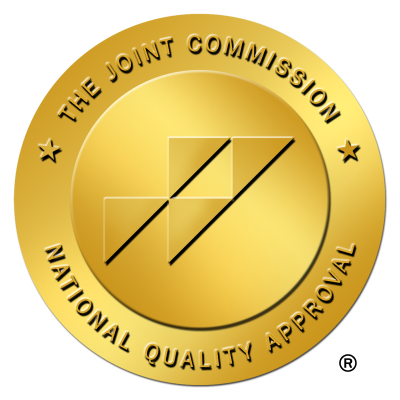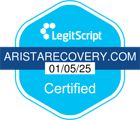Do You Talk to Your Kids About Prescription Drug Abuse?

Understanding the Urgency of the Dialogue
In today's world, prescription drug abuse has emerged as a rapidly growing threat to young individuals. Despite the legal status and intended benefits of these medications, their misuse can lead to severe health risks and addiction. With many teens underestimating the dangers compared to illicit drugs, it's crucial that parents become active participants in addressing this issue. This narrative serves as a guide for parents to initiate and maintain open, informed conversations with their children about the misuse of prescription drugs.
Defining Prescription Drug Abuse and Its Impacts
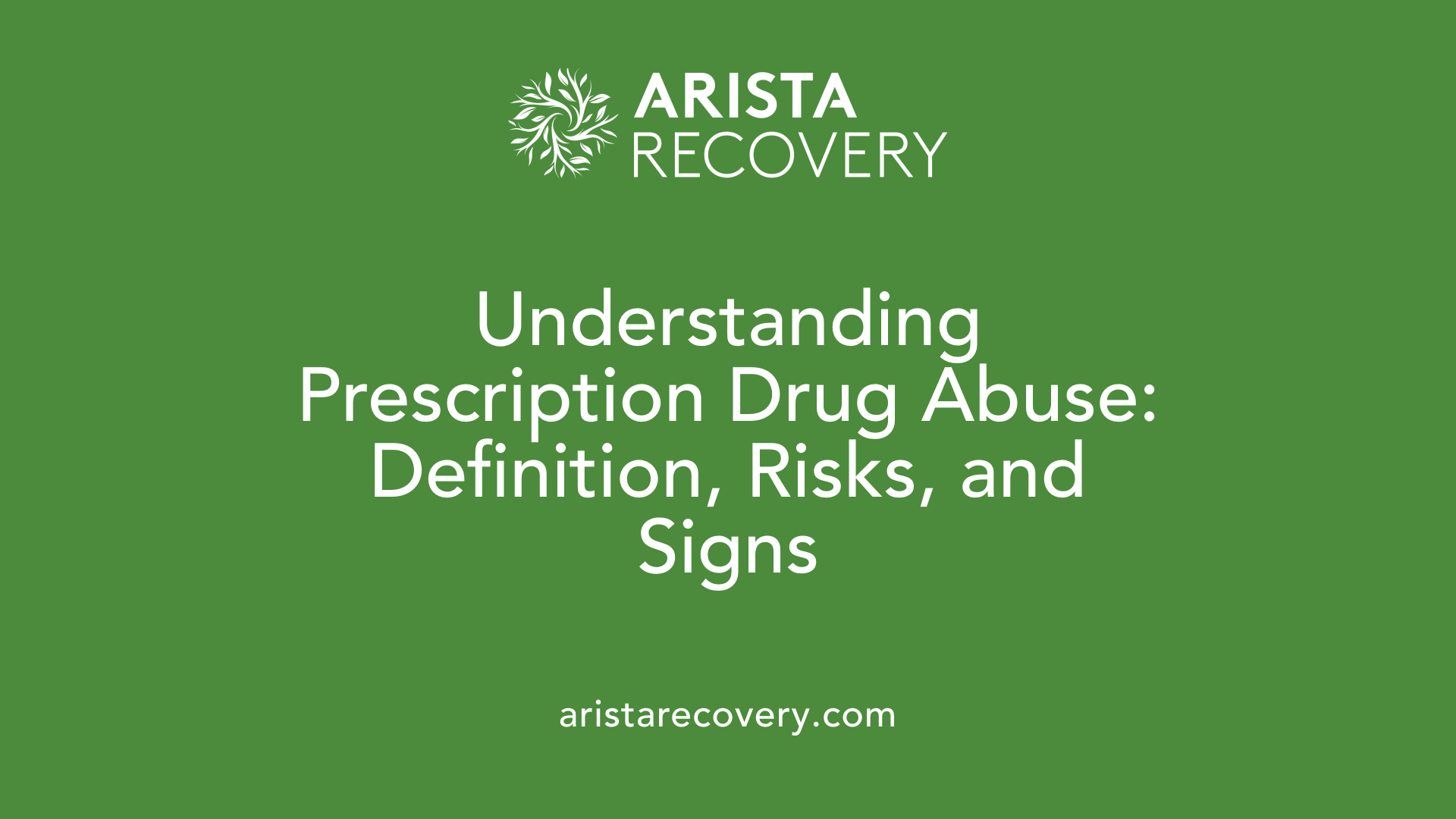
What is considered prescription drug abuse?
Prescription drug abuse involves using prescribed medications in ways not intended by a healthcare provider. This misuse can manifest in various forms, such as:
- Taking someone else’s medication
- Exceeding the prescribed dosages
- Using the drug for recreational purposes instead of its intended medical use.
Commonly abused medications include:
- Opioid painkillers: For example, oxycodone and hydrocodone, which are often used for managing chronic pain.
- Anti-anxiety medications: Such as alprazolam (Xanax) and diazepam (Valium), used to treat anxiety disorders.
- Stimulants: Including methylphenidate (Ritalin) and amphetamine (Adderall), typically prescribed for ADHD.
What are the risks and signs of abuse?
The risks associated with prescription drug misuse are substantial, encompassing:
- Addiction: Regular misuse can lead to physical and psychological dependency.
- Overdose: Opioid misuse, in particular, can lead to severe respiratory depression, potentially resulting in death.
- Long-term health complications: Including cognitive dysfunction, organ damage, and other chronic health issues.
Signs of abuse differ based on the type of medication:
- Opioid abuse may lead to symptoms like constipation and slowed breathing.
- Stimulant abuse often causes irregular heartbeat and insomnia.
Early identification of abuse is critical, as prompt intervention can prevent long-term substance use disorders.
Engaging Children in Dialogue About Drug Misuse
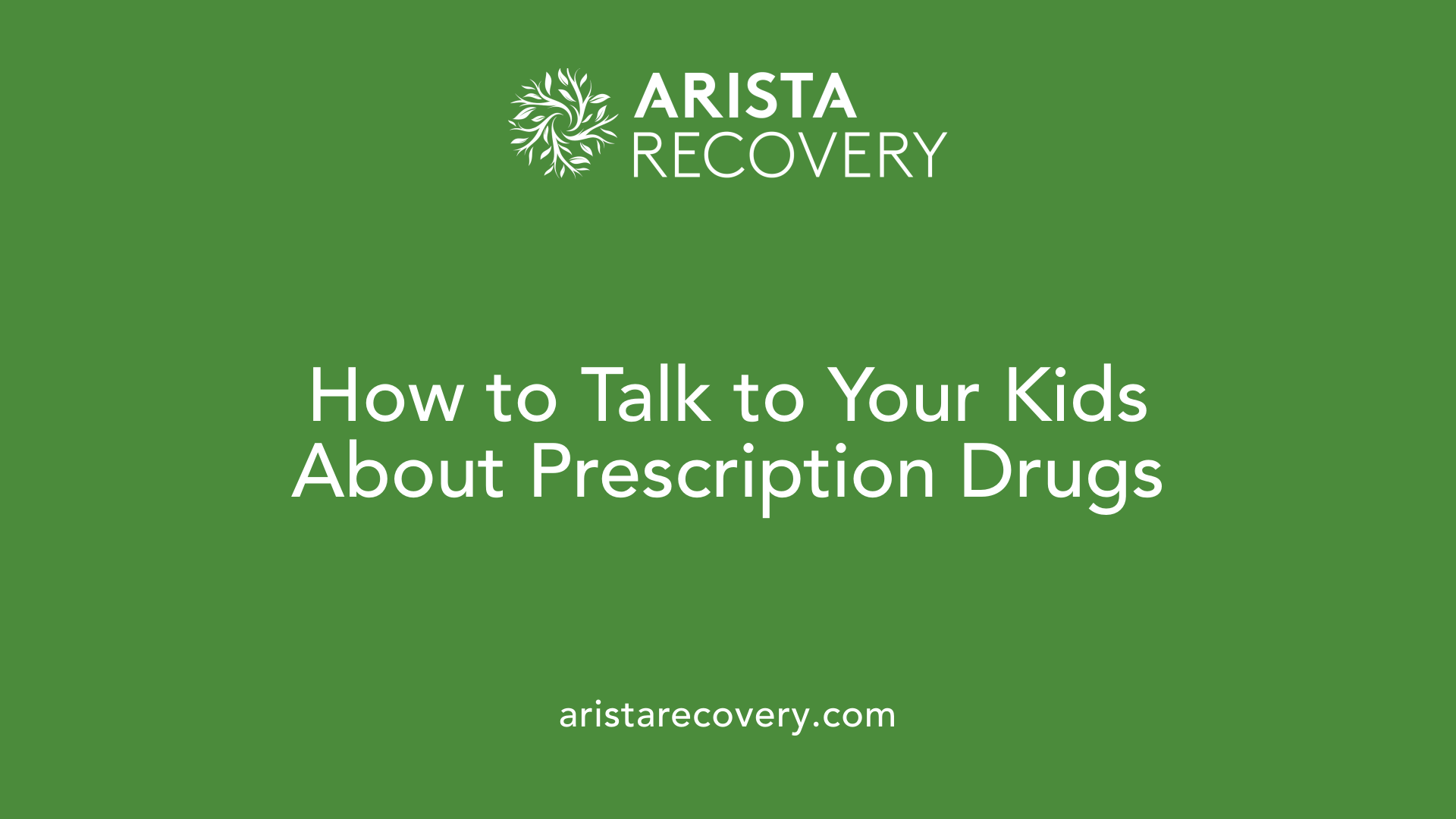
How should parents talk to their children about prescription drug abuse?
Parents should initiate conversations about prescription drug abuse early and often, ensuring their tone is calm and approachable. It's crucial to explain the risks and dangers associated with not only prescription drugs but also other substances like alcohol and tobacco.
Engaging children in discussions about what they have heard regarding drugs helps parents understand their perspectives and concerns. For younger children, these discussions can occur during teachable moments—for example, while watching a TV show that touches on substance use. During these chats, use simple language to emphasize how misuse can harm the body.
Importance of early conversations
Starting the conversation about drugs between the ages of 5 and 7 sets the stage for ongoing dialogue. Kids absorb their parents' attitudes toward substance use, making it vital for adults to model a healthy approach. Children with a history of family substance abuse are particularly susceptible to experimenting with drugs, underscoring the need for early intervention.
Teachable moments in discussions
As children age, using everyday situations to discuss drug safety becomes essential. When parents notice media portrayals of drug use or hear peer-related stories, these can serve as ideal opportunities for discussion. By explaining the consequences of misuse openly and factually, parents help shape their children's understanding, making it clearer that taking medications without guidance is unsafe and illegal.
Continual, honest conversations can lessen misconceptions that prescription drugs are safer than illicit drugs, empowering kids to make informed decisions.
Fostering a Supportive Environment for Open Dialogue
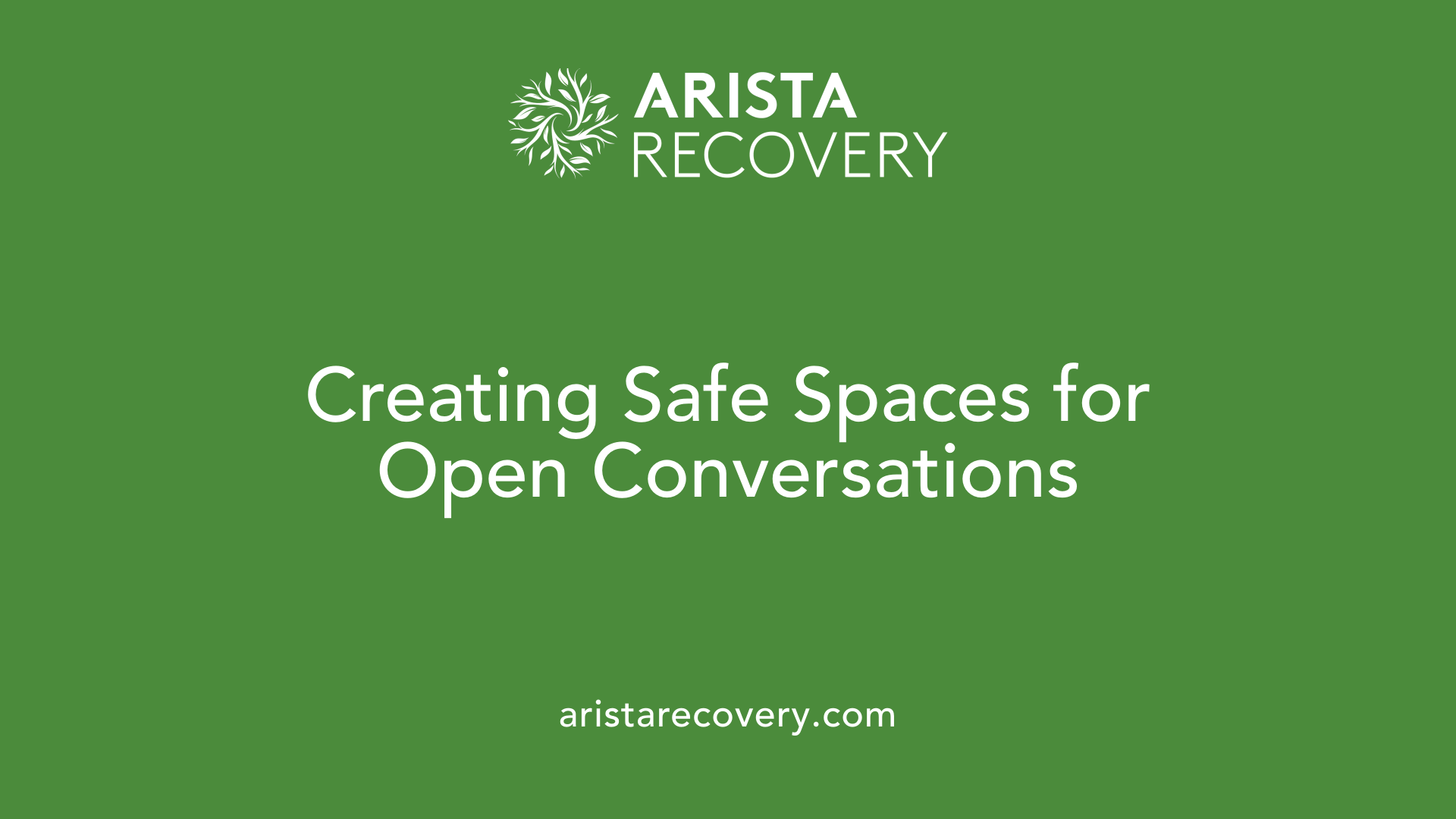
Creating a Non-Judgmental Space
Establishing a non-judgmental space is crucial for effective discussions about prescription drug use. Parents should approach these conversations with an open heart, ensuring their children feel safe to express their thoughts and concerns. This involves conveying love and compassion while steering clear of accusations or confrontations. Parents can set the tone by inviting their kids to share openly without fear of judgment.
Techniques for Active Listening
Active listening is another essential aspect. Parents can demonstrate listening by nodding, maintaining eye contact, and echoing back what their children say to show understanding. By validating their feelings, parents can help their children know their voices matter. This approach encourages ongoing dialogue and helps to dismantle barriers that might prevent honesty about feelings regarding drugs.
Supporting Children Emotionally
Emotional support plays a pivotal role in fostering these discussions. Parents should reassure their kids that they care deeply about their well-being. Keeping open lines of communication about feelings and daily experiences helps children feel valued and supported. Moreover, parents should educate themselves on addiction signs to guide their children effectively if trouble arises. By emphasizing that addiction is treatable, they reinforce a message of hope and support.
Understanding the Current Landscape of Prescription Drug Abuse
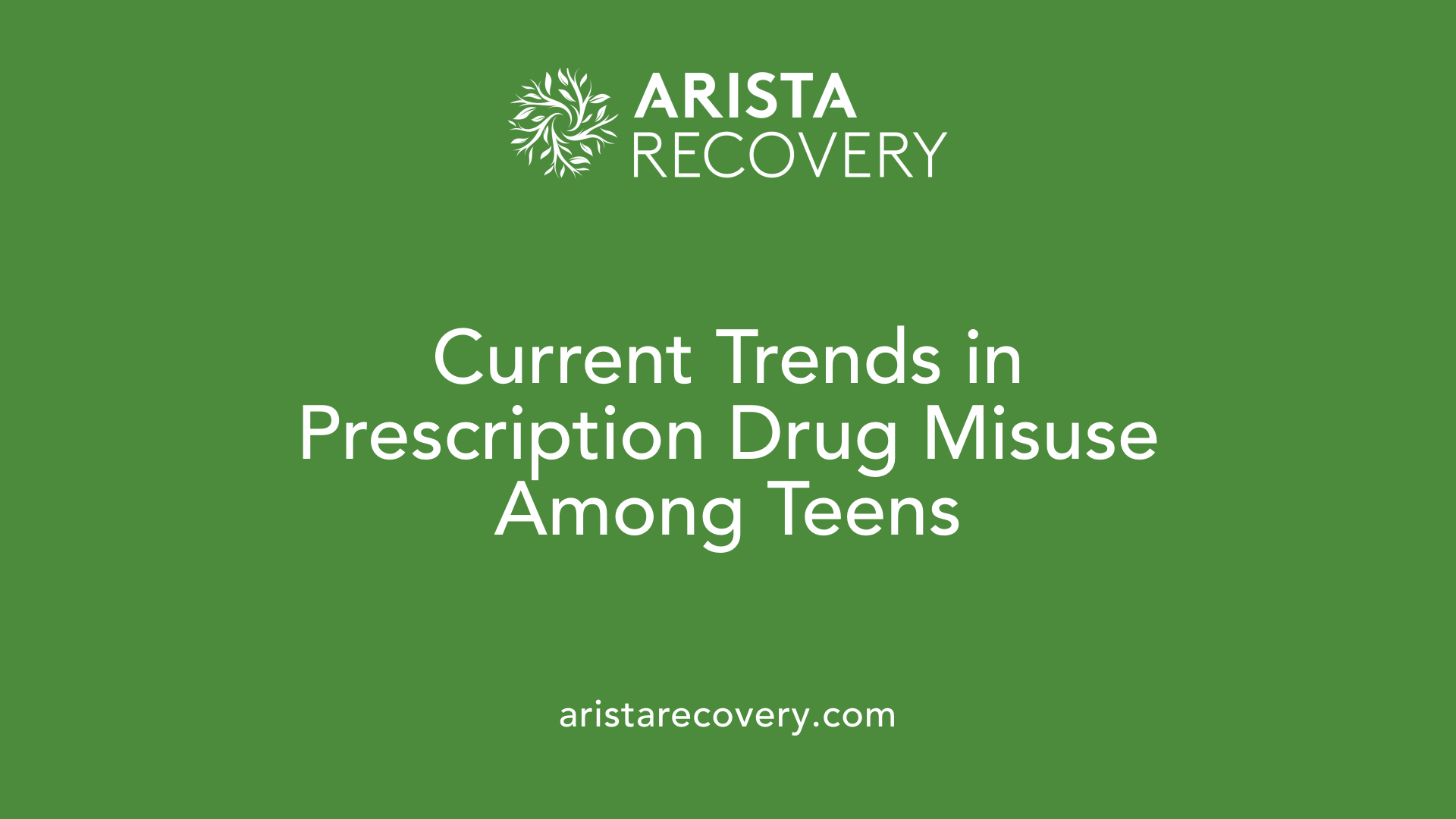
Statistics on Teen Drug Misuse
Prescription drug abuse is one of the fastest-growing substance abuse problems in the United States. Alarmingly, nearly one in five teens report intentionally misusing prescription medications to get high, with one in ten admitting to abusing cough medicine. Specifically, 2.1 million teens aged 12 to 17 reported abusing prescription drugs in 2008 alone. Even more concerning, 2,500 kids ages 12 to 17 misuse pain relievers for the first time every day.
Major Influences and Availability
Teens primarily obtain prescription drugs from familiar environments. About 65% of those who misuse prescription medications admit they sourced them from family members and friends. Moreover, over half of teens believe prescription drugs are easier to access than illegal drugs, leading to increased risks of misuse during social gatherings, known as "pharm parties."
Perceived Safety vs. Real Risks
Many adolescents mistakenly view prescription medications as safer than street drugs, with half of the teens expressing little concern over abusing them. This perception contributes to significant risks like overdose, with prescription painkiller overdoses resulting in nearly 15,000 deaths annually. It is crucial for parents to bridge the knowledge gap by openly discussing the dangers involved with prescription drug misuse, emphasizing that all substances can pose serious health risks.
Proactive Prevention: Educating and Setting Boundaries
Importance of Parental Influence
Parents play a pivotal role in shaping their children's attitudes toward drugs, including prescription medications. Research indicates that kids who learn about drug risks at home are significantly less likely to misuse substances. Starting conversations about these topics early helps establish a foundation of understanding regarding the potential dangers of drug use. Teens are particularly influenced by their parents' attitudes; seeing a positive, informed perspective can deter them from experimentation.
Setting Clear Rules and Boundaries
Establishing explicit rules regarding drug use is crucial. By clearly communicating expectations and the consequences of breaking these rules, parents can help their children navigate peer pressure and understand the gravity of substance misuse. Engaging in ongoing discussions not only reinforces these boundaries but also empowers children to make informed decisions when faced with challenging situations.
Ensuring Safe Storage of Medications
Properly securing medications is an essential step in preventing misuse. Parents should store prescription drugs in locked cabinets and dispose of any unused medications promptly. This practice reduces a teen’s access to these substances, which are often obtained from family members. By prioritizing medication safety, parents can significantly diminish the risk of prescription drug abuse in their households.
Resources for Parents Seeking Support
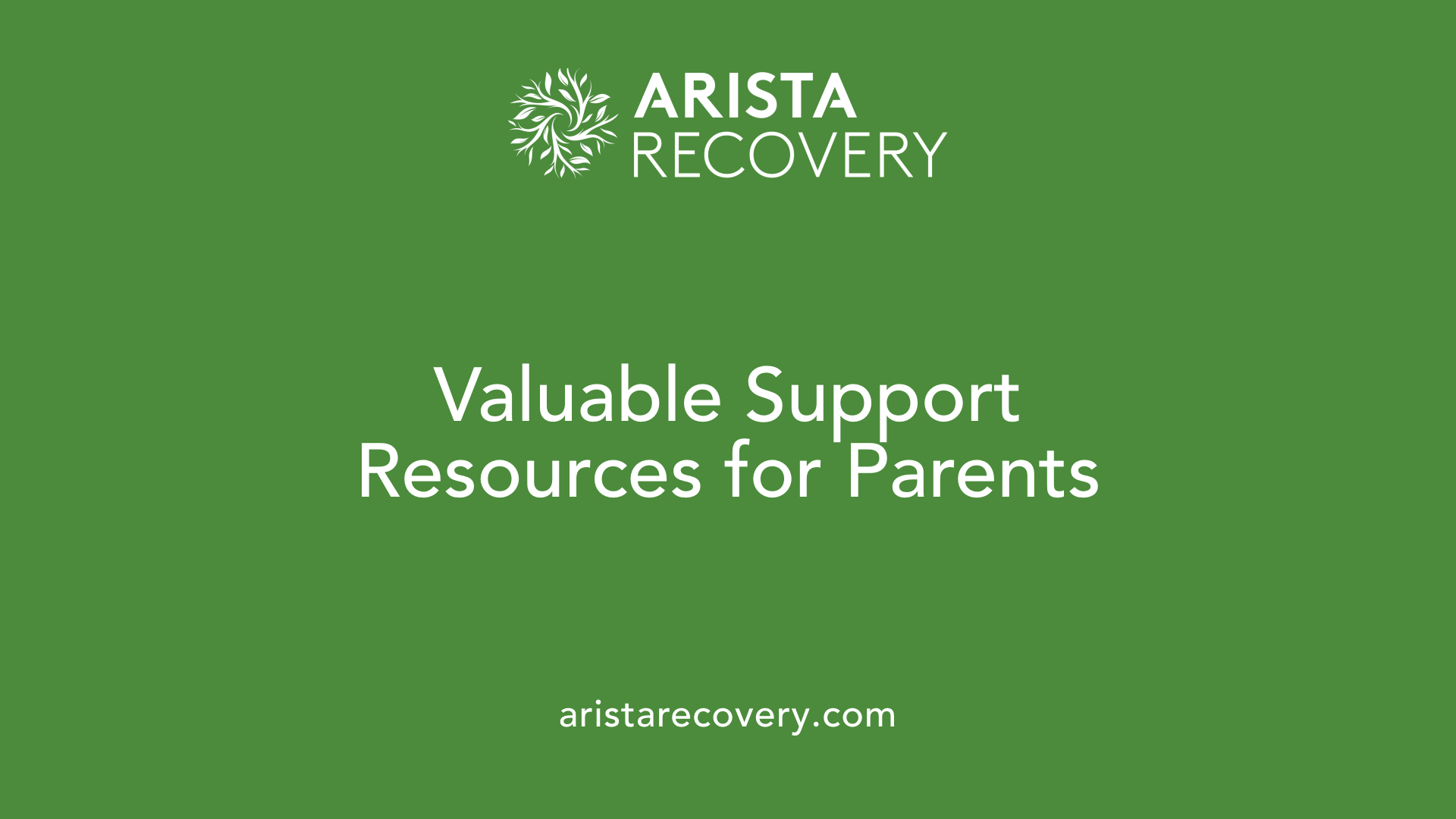
Available Resources for Drug Prevention
Parents concerned about prescription drug misuse can access a variety of resources aimed at prevention and education. The Substance Abuse and Mental Health Services Administration (SAMHSA) offers a National Helpline that provides confidential support for families facing substance use disorders. It's available 24/7 and can connect you with local treatment facilities and support groups.
Helplines and Support Networks
The SAMHSA National Helpline can be reached at 1-800-662-HELP (4357). This helpline not only offers immediate support but also resources for parents to understand prescription drug abuse dynamics. Additionally, educators and community programs may offer workshops and informational sessions about the dangers of medication misuse.
Further Reading Materials
Parents can find insightful booklets, such as "What Is Substance Abuse Treatment? A Booklet for Families," which addresses common concerns regarding substance use and discusses treatment options. Websites like the Partnership for Drug-Free Kids provide tailored communication strategies and tips for talking to children, ensuring parents are well-equipped to handle these discussions effectively.
Empowering Parents and Protecting Youth
To mitigate the risk of prescription drug misuse among children and teens, it is vital for parents to engage in open, informed, and supportive conversations. By fostering a dialogue rooted in empathy and understanding, parents can empower their children to make safe choices and cultivate a meaningful knowledge of the risks associated with prescription drugs. Through persistent communication and education, parents not only decrease the likelihood of misuse but also strengthen the trust within their relationships, offering a supportive lifeline in the complex journey of growing up.
References
- Talk to your kids about prescription medications - Mass.gov
- Talking to Your Kids About Drugs (for Parents) | Nemours KidsHealth
- SAMHSA's National Helpline
- [PDF] Talking to kids about prescription drug abuse - City of Battle Creek
- Protect Your Kids! Prescription Drug Alert
- Talking With Your Kids About Drugs, Alcohol, and Tobacco
- Talking With Your Kids and What to Say to Prevent Medicine Misuse

